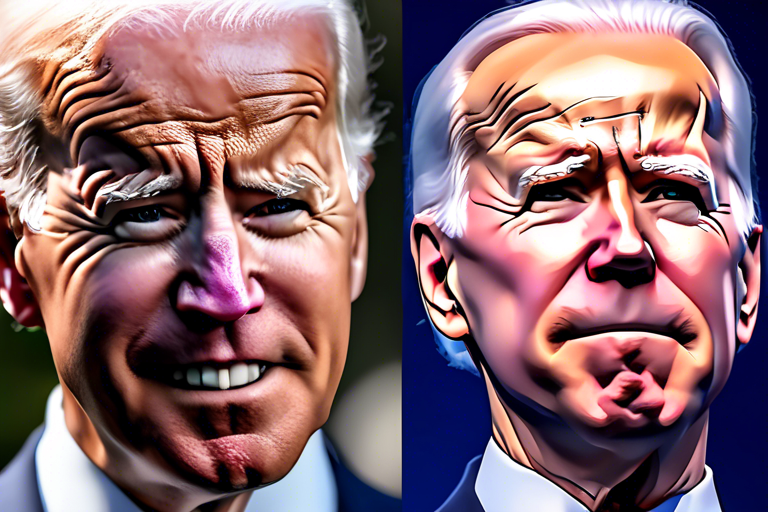Reevaluating the Future of the Democratic Party
As we navigate the current political landscape, there are growing concerns about the direction of the Democratic Party. With recurring debates around Joe Biden’s age and his ability to lead, it’s essential to examine the potential implications for the upcoming election. Let’s delve into the key points:
Challenges Faced by President Biden
Reflecting on President Biden’s recent public appearances and his performance in debates, there are various observations worth noting:
- Age-Related Issues: Biden has openly acknowledged his struggles with age-related limitations, such as speech difficulties and cognitive lapses.
- Limitations in Communication: Biden’s recent debate performance raised concerns about his ability to articulate coherent thoughts and engage effectively.
- Public Perception: A significant portion of the American population, across different demographics, perceives Biden as too old to effectively execute the duties of the presidency.
These challenges underscore the critical juncture faced by President Biden and the broader Democratic Party as they approach the upcoming election.
Evaluating the Political Landscape
Amidst speculations and predictions regarding President Biden’s future in the race, it’s crucial to consider the following aspects:
- Ambiguity Surrounding Biden’s Campaign: Biden’s persistent stance on continuing his campaign despite age-related concerns has sparked debates within the party.
- Delusional Optimism: The apparent disconnect between Biden’s campaign rhetoric and public sentiment raises questions about the party’s strategic direction.
- Impact on Electoral Outcomes: The stark policy disparities between Biden and Trump, coupled with Biden’s age-related challenges, could influence voter perceptions and electoral results.
Paving a Transparent Path Forward
Given the complexity of the current political scenario, there is a need for transparent decision-making processes within the Democratic Party. Consider the following insights:
- Proposed Democratic Processes: Calls for a new nominee selection process, including regional town halls moderated by prominent figures like Obama and Clinton, reflect the party’s quest for transparency.
- Ethical Considerations: Upholding fairness in the nomination process and avoiding potential biases is essential to preserving the party’s integrity.
- Public Perception: Engaging in transparent and inclusive nomination procedures can enhance public trust and engagement in the electoral process.
Ensuring Accountability and Clarity
As the Democratic Party navigates through critical decisions and strategizes for the upcoming election, it’s paramount to uphold accountability and clarity in the following areas:
- Policy Focus: Shifting the electoral discourse towards policy matters rather than personal attributes like age is vital for informed voter decision-making.
- Educational Campaigning: Emphasizing policy differences and their implications for the electorate can foster a more substantive and constructive political dialogue.
- Ethical Responsibility: Prioritizing ethical considerations in candidate selection processes can enhance public trust in the democratic system.
Hot Take: Redefining Political Narratives
As we navigate the evolving dynamics of the Democratic Party and the upcoming election, it’s imperative to reevaluate traditional political narratives and prioritize transparency and accountability in decision-making processes. By fostering inclusive and ethical practices, the party can enhance public trust and engagement, ultimately shaping a more robust democratic landscape.





 By
By
 By
By
 By
By
 By
By
 By
By